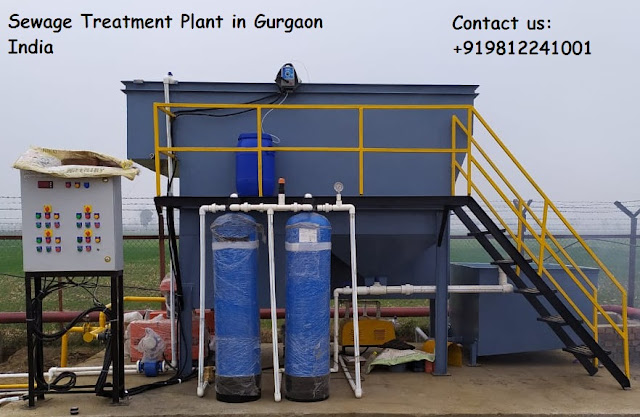Wastewater treatment plants
Wastewater treatment plants might be recognized by the kind of wastewater to be dealt with, for example regardless of whether it is sewage, industrial wastewater, agricultural wastewater, or leachate.
An ordinary civil sewage treatment plant in an industrialized nation may incorporate the essential treatment to evacuate strong material, auxiliary treatment to process broke down and suspended organic material just as the supplements nitrogen and phosphorus, and – here and there yet not generally – sanitization to slaughter pathogenic microscopic organisms. The sewage sludge that is delivered in sewage treatment plants experiences sludge treatment. Bigger regions regularly incorporate plants releasing industrial wastewater into the city sewer framework. The expression "sewage treatment plant" is some of the time supplanted with the expression "wastewater treatment plant". Sewage can likewise be treated by forms utilizing "Nature-based solutions".
Removal of wastewaters from an industrial plant is a troublesome and exorbitant issue. Most oil processing plants, chemical, and petrochemical plants have nearby offices to treat their wastewaters so the pollutant fixations in the rewarded wastewater agree to the neighborhood and/or national guidelines with respect to removal of wastewaters into network treatment plants or into waterways, lakes or oceans. Built wetlands are being utilized in an expanding number of cases as they gave high caliber and beneficial on-location treatment. Other industrial procedures that produce a lot of wastewaters, for example, paper and mash creation have made environmental concern, prompting advancement of procedures to reuse water use inside plants before they must be cleaned and arranged.
Industrial wastewater treatment plants are required where civil sewage treatment plants are inaccessible or cannot sufficiently treat explicit industrial wastewaters. Industrial wastewater plants may lessen crude water costs by changing over chosen wastewaters to recycled water utilized for various purposes. Industrial wastewater treatment plants may diminish wastewater treatment charges gathered by metropolitan sewage treatment plants by pre-getting wastewaters lessen centralizations of pollutants estimated to decide client expenses.
Despite the fact that economies of scale may support the utilization of a huge civil sewage treatment plant for removal of little volumes of industrial wastewater, industrial wastewater treatment, and removal might be more affordable than effectively distributed expenses for bigger volumes of industrial wastewater not requiring the regular sewage treatment succession of a little city sewage treatment plant.
An industrial wastewater treatment plant may incorporate at least one of the accompanying as opposed to the ordinary essential, optional, and sanitization succession of sewage treatment:
An API oil-water separator, for expelling separate stage oil from wastewater.
A clarifier, for expelling solids from wastewater.
A roughing filter, to diminish the biochemical oxygen demand of wastewater.
A carbon filtration plant, to expel poisonous broke down organic mixes from wastewater.
An advanced electrodialysis reversal (EDR) framework with particle exchange membranes.
Agricultural wastewater treatment plants
Agricultural wastewater treatment for constantly kept animal tasks like milk and egg creation might be acted in plants utilizing mechanized treatment units like those depicted under industrial wastewater; however where land is accessible for lakes, settling bowls and facultative tidal ponds may have lower operational expenses for occasional use conditions from rearing or reap cycles.
Leachate treatment plants
Leachate treatment plants are utilized to treat leachate from landfills. Treatment choices include biological treatment, mechanical treatment by ultrafiltration, treatment with dynamic carbon filters, electrochemical treatment including electrocoagulation by different exclusive innovations, and opposite assimilation membrane filtration utilizing circle tube module innovation.



I was looking around for help as I am planning the installation of the Sewage Treatment Plant at my business unit, thanks the website now everything is very clear for me.
ReplyDeleteThanks for Useful infromation Try friend as I am looking for options to install the Wet scrubbers and I must say they are actually offering the best deals in town.
ReplyDeleteFor all those who are new to the swimming pool filtration plant, going through this website would be very much beneficial as it contains all the basic as well as deeper information about it.
ReplyDeletePacked-bed scrubbers of Wet Scrubber in India help to remove air pollutants via inertial or diffusional impaction, reaction with a sorbent or reagent slurry, or absorption into the liquid solvent. The packed bed scrubbers include a chamber containing layers of variously-shaped packing material that provides a large surface area for liquid-particle contact. The shape, weight, surface area, and cost all influence of the low gas-phase pressure drop and gas-liquid contact. The packing is held in place by wire mesh retainers and is successfully supported by a plate neat the scrubber bottom.
ReplyDeleteEffluent Treatment Plant (ETP)
ReplyDeleteEffluent Treatment Plant
Effluent Treatment Plant in India
Effluent Treatment Plant in Delhi
Effluent Treatment Plant in Gujrat
Thanks for sharing this information. A Drinking Water Treatment Plant, often simply referred to as a water treatment plant, is a critical facility designed to ensure the safety, quality, and availability of potable water for communities and households. This essential infrastructure plays a pivotal role in providing clean and safe drinking water to the public, safeguarding public health, and promoting environmental sustainability.
ReplyDeleteZero Liquid Discharge (ZLD) is indeed the most trusted and environmentally friendly water treatment technology. It ensures complete wastewater recycling with no discharge, conserving water and preventing pollution. ZLD supports sustainable industrial operations, meets strict environmental regulations, and promotes responsible water management—making it a critical solution for a greener future.
ReplyDeleteSwjal Process Pvt. Ltd.